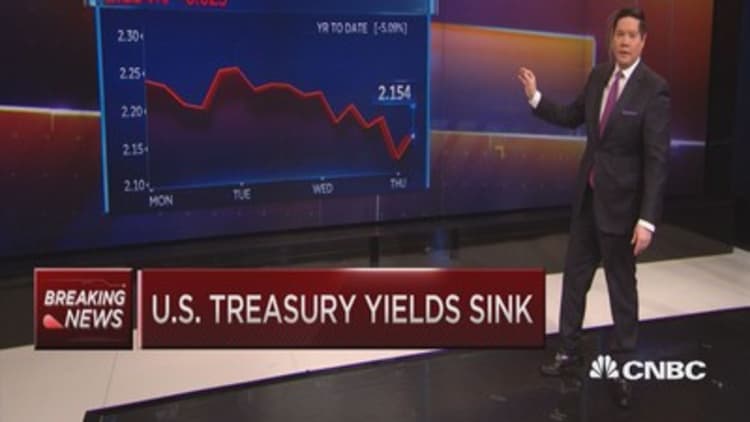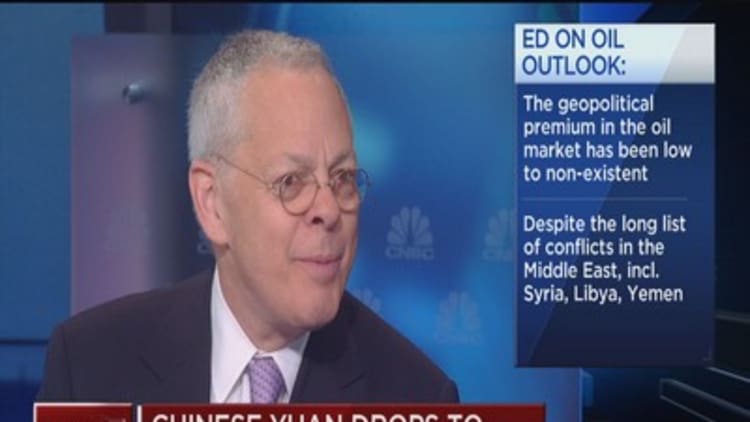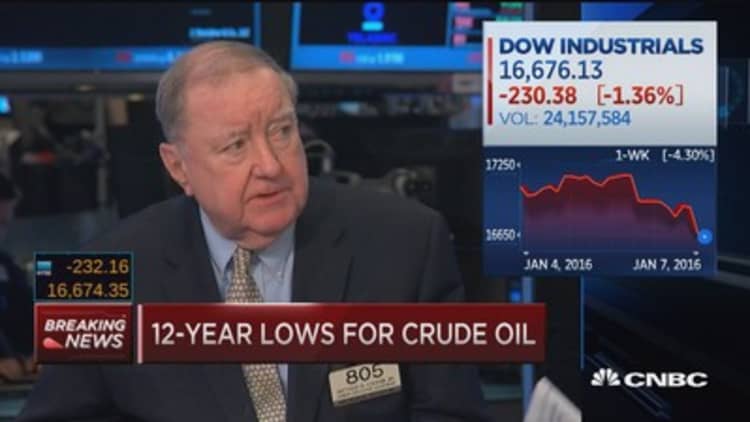


Falling oil prices are not the bellwether for the global economy they once were, and a rebound will only come when producers seriously cut back on the amount they are pumping.
"The weakness in oil prices is not telling us the economy is collapsing. It's just that there's way too much oil," said Ethan Harris, head of North America economics at Bank of America Merrill Lynch. "Only a small part of that is that demand is weakened. It's not telling us about global spending. There's just too much supply."
The world is currently oversupplied by an estimated 1.5 to 2 million barrels a day, thanks to hefty production by the three largest producers — Saudi Arabia, Russia, and the U.S. — and incremental new barrels by producers such as Iraq.
U.S. crude futures fell to $32.10 a barrel on Thursday, their lowest level since 2003. The Energy Information Administration said U.S. oil production has been running at about 9.2 million barrels a day, under its all-time high of 9.6 million, but a steady and high level given the impact on producers of sharply lower price.
Another factor for the fall in oil could be the unseasonably warm weather experienced recently. "Somewhat softer demand number but a lot of it is a combination of weather and supply," said Bruce Kasman, J.P. Morgan chief economist.
In the U.S., warm weather has contributed to a build-up of distillates, which is diesel and heating oil. That and a build-up in gasoline supplies are signaling less need for crude demand by refineries.
U.S. oil prices pared losses on Thursday after hitting their lows, but several experts see prices going even lower.
"It's hard to see us going down much further, but I think we're going to oil test the $20 range," said John Kilduff, founding partner of Again Capital. "This is what it's going to take to get the attention of [OPEC]."
Last month, the cartel agreed to keep its high production levels.
"The market is itself much more fragile than the price of oil would indicate," Ed Morse, head of global commodity research at Citigroup, said Thursday. "We think the pressure is still going to be on for lower prices."
RBS economist Michelle Girard, however, said that "one of the things I find frustrating is the people see falling oil prices as a negative." Lower oil prices help consumers by adding to their disposable income, she said. "If oil prices go up, would it be a positive? Of course not," she said. "People are not applying the same thinking both ways."
Consumer spending rose by 0.3 percent in November.
Concerns over an economic slowdown took center stage this week, as Chinese equities plunged 7 percent twice and dragged other global financial markets down.
Still, Kilduff said the fall in oil prices will lead to lost jobs, thus pressuring the economy."It's going to hurt," he told CNBC. "In previous cycles, [higher oil] was a function of strong economic performance. This time, it's a symptom of poor economic conditions."
— CNBC's Matthew J. Belvedere and Patti Domm contributed to this report.




